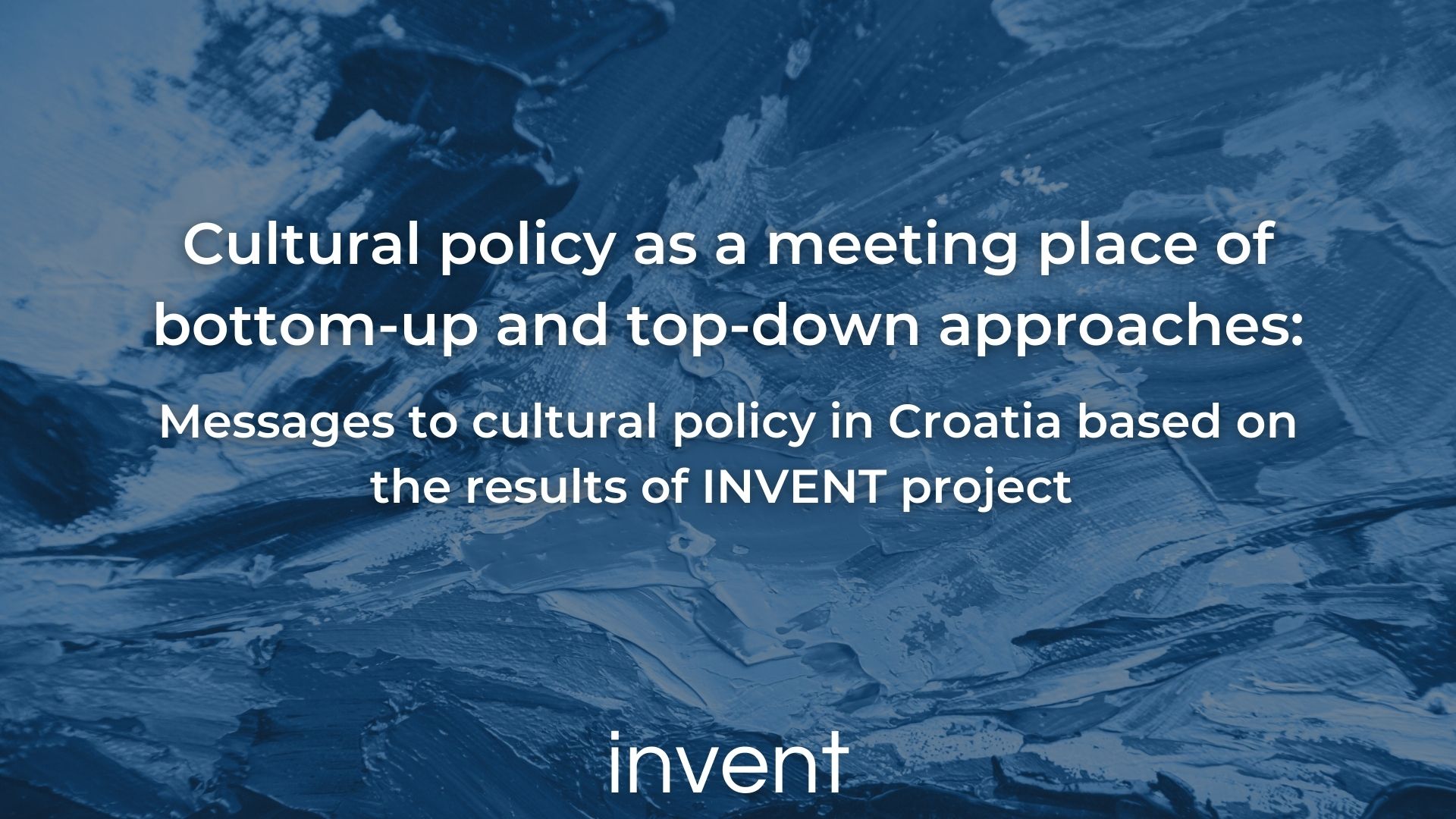The importance of academic knowledge on the social aspects of culture is essential in the field of cultural policy. Nevertheless, insights of this kind are frequently neglected in the processes of devising national cultural policies in different European countries. In addition to broad EU policy frameworks, cultural policies of the nation states should include knowledge about how culture is seen by the citizens, i.e., how it is approached ‘from below’.
That was one of the main points of the online presentation ‘How is culture understood in Croatia? Messages to cultural policy’ delivered by Mirko Petrić and organized by the Croatian INVENT team and Croatian Sociological Association on March 15th, 2022. The event gathered over 30 sociologists, cultural policy experts, representatives of civil society organizations, cultural foundations and cultural institutions. Presentation materials were also delivered to the representatives of interested institutions, including the Croatian Ministry of Culture and Education and Teacher Training Agency, as well as to the journalists and academics.
In his presentation, based on the INVENT project results, Petrić focused on the various understandings of culture and explanations of the different ways in which culture is significant in the lives of Croatian citizens (i.e., outlined their ‘bottom-up’ vision of the notion). Pronounced generational differences which were found were then contextualized in the changes of Croatian cultural policies from 1945 to the present. In this way, the citizens’ understandings of culture were contrasted with the ‘top-down’ vision of the policy makers.
It was emphasized that cultural policy matters, as the conclusions pointed out the importance of past cultural policy goals, programmes, ideas and vocabularies for the understandings of culture present among the citizens today. The need for building links between bottom-up and top-down approaches to culture was highlighted as one of the key preconditions for the formulation of informed, effective and coordinated cultural policies.
The discussion thematised issues relevant for the interconnections of academic work and policymaking. The importance of research insights and stakeholders’ experiences for the formulation of effective policies was particularly accentuated, as well as putting equal emphasis both individual and collective cultural needs. This is especially important in view of the deterioration of the public and social dimensions of culture, brought about by emphasizing its industrial dimensions and by the pandemic context of isolation.
Among the conclusions reached by the participants were the need for a tighter cooperation between the stakeholders in delivering cultural policies, as well as for the stronger inclusion of knowledge and vision of the cultural actors in the policymaking process.



 This project has received funding from the European Union’s Horizon 2020 research and innovation programme under grant agreement No
This project has received funding from the European Union’s Horizon 2020 research and innovation programme under grant agreement No
Leave A Comment